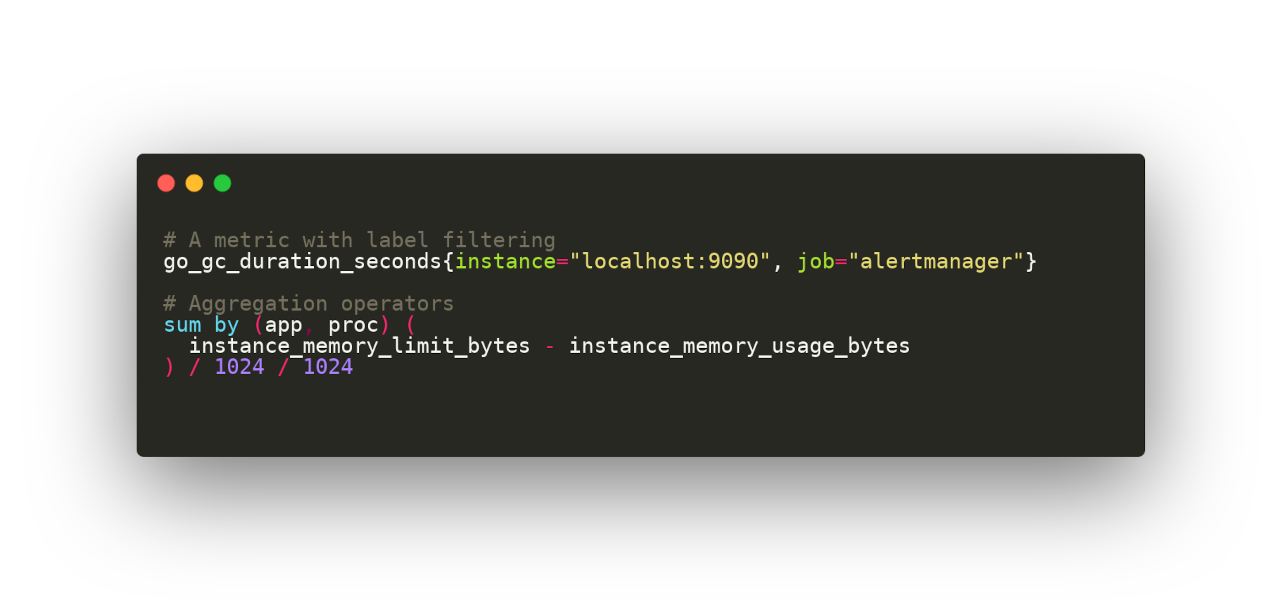A PromQL lexer for Pygments.
This Python package provides a Pygments lexer for the Prometheus Query Language. It allows Pygments and other tools (Sphinx, Chroma, etc) to highlight PromQL queries.
To get the latest version from pypi.org:
pip install pygments-promqlIn a terminal you can echo and pipe a query directly from stdin:
echo 'prometheus_http_requests_total{code="200"}' | pygmentize -l promqlOr use a file, for example, create the example.promql file with queries from
tests/example.promql.
In this case the option -l promql is not needed because the lexer will be
detected based on the file extension.
Showing colorized output in a terminal:
pygmentize example.promqlTo generate a PNG file:
pygmentize -f png -O "line_numbers=False,style=monokai" -o example.png example.promqlThe following example:
from pygments import highlight
from pygments.formatters import HtmlFormatter
from pygments_promql import PromQLLexer
query = 'http_requests_total{handler="/api/comments"}'
print(highlight(query, PromQLLexer(), HtmlFormatter()))Will generate this HTML output:
<div class="highlight">
<pre>
<span></span>
<span class="nv">http_requests_total</span>
<span class="p">{</span>
<span class="nl">handler</span>
<span class="o">=</span>
<span class="s">"/api/comments"</span>
<span class="p">}</span>
<span class="w"></span>
</pre>
</div>Use HtmlFormatter(noclasses=True) to include CSS inline styles on every <span> tag.
In order to highlight PromQL syntax in your Sphinx documentation site
you just need to add this 3 lines of Python code at the end of your site's conf.py file:
from sphinx.highlighting import lexers
from pygments_promql import PromQLLexer
lexers['promql'] = PromQLLexer()Then you will be able to use it like this:
Here's a PromQL example:
.. code-block:: promql
# A metric with label filtering
go_gc_duration_seconds{instance="localhost:9090"}
If you want to test, play or contribute to this repo:
git clone https://github.com/pabluk/pygments-promql.git
cd pygments-promql/
pip install -r requirements.txt
pip install -e .
pytest -v